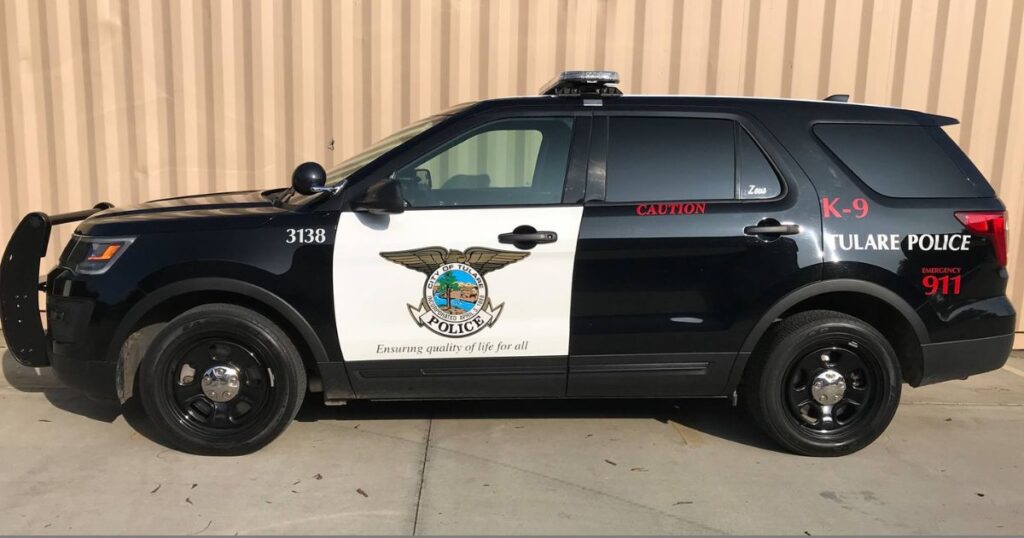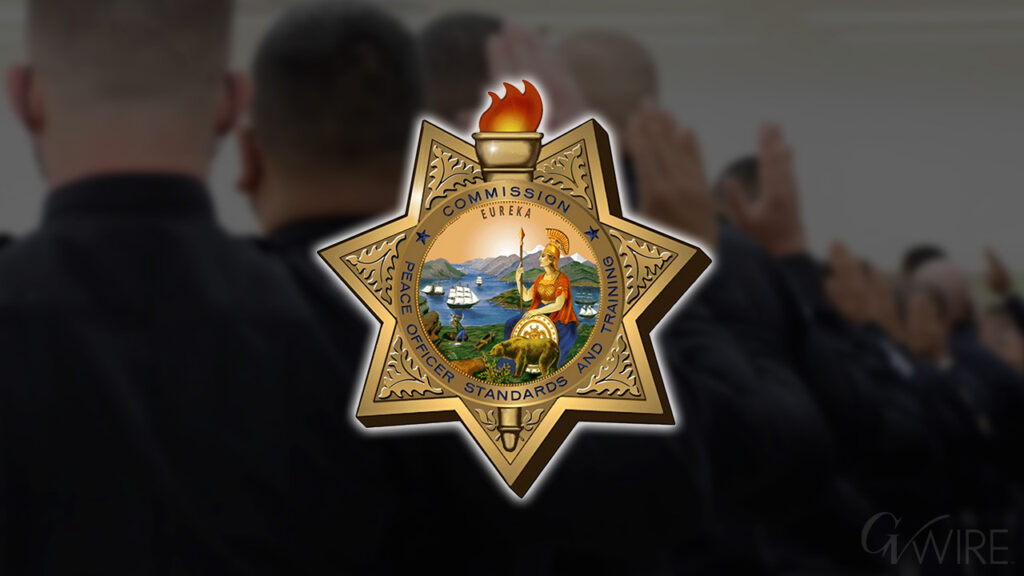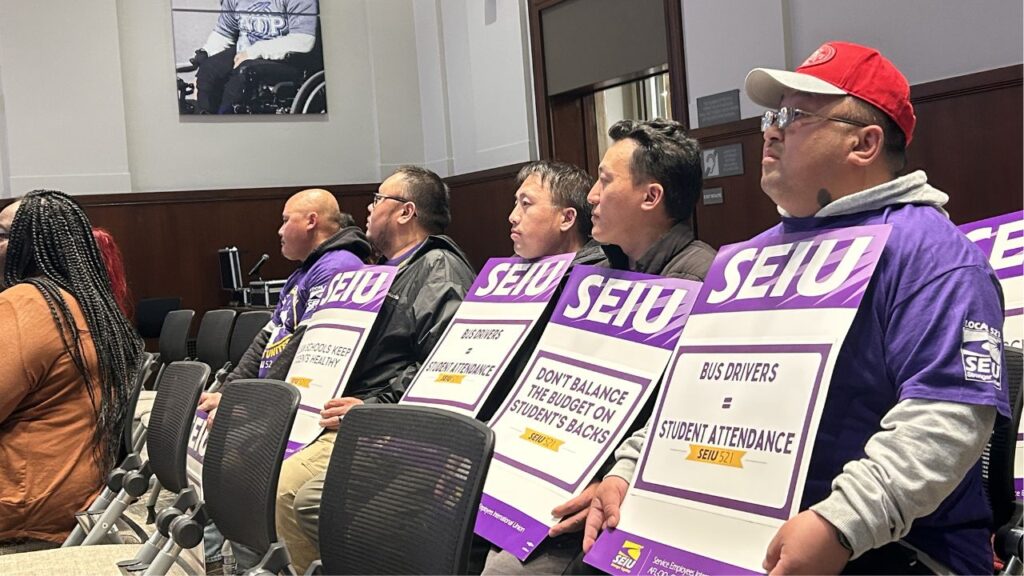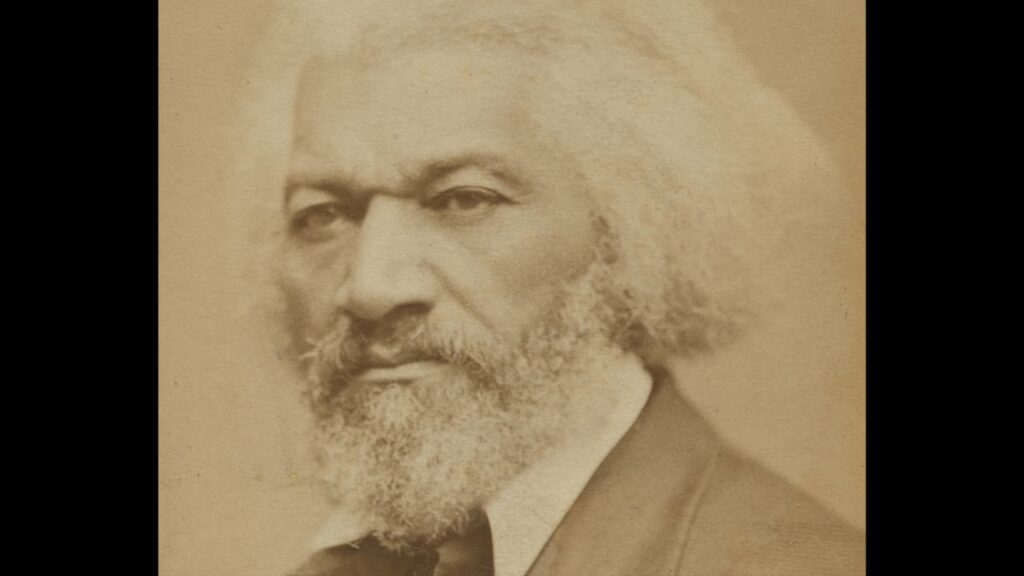Share
Concerns raised by community members over perceived bias in Valley PBS’s locally produced programming and the Board of Trustees’ rejection of a Community Advisory Board candidate has drawn the attention of PBS public editor Ricardo Sandoval-Palos.

“Some viewers of Valley PBS have brought to my attention their concerns about programming and the role of the station’s community advisors. … I plan to work with all parties involved to take a close look at this particular controversy.” — PBS public editor Ricardo Sandoval-Palos
In recent years, former station leaders, an outgoing Community Advisory Board member, and the rejected CAB applicant have penned op-ed pieces in California newspapers questioning whether the station’s “American Grown: My Job Depends on Ag” and Tapped Out” series are propaganda pieces underwritten by the agriculture industry. They also have been critical of Jeff Aiello’s role as both the station CEO and president and the owner of 18THIRTY Entertainment, which produced the programming.
In addition, there was a vote in May by the station’s governing board to deny membership to the Community Advisory Board of an applicant who had openly criticized the station’s programming in published columns.
“Some viewers of Valley PBS have brought to my attention their concerns about programming and the role of the station’s community advisors,” Sandoval-Palos told GV Wire. “My role at PBS is to ask questions about the system on behalf of viewers, especially about controversies or issues that might illuminate the work of an unconventional public network and its local member stations. I plan to work with all parties involved to take a close look at this particular controversy.
As public editor, Sandoval-Palos has previously examined questions of ethics and political pressure, including the recent firing of a West Virginia Public Broadcasting reporter whose investigation of a state health agency reportedly irked the West Virginia governor’s office. The then-station general manager who fired her had previously worked as a spokesman for the governor’s office.
Aiello was not immediately available Tuesday to comment, and board president Jonathan Graves did not respond to a request for comment.
Is Valley PBS Blatantly Pro-Agriculture?
According to PBS policy, member stations are supposed to provide a “nonsectarian, nonpolitical, noncommercial” educational program service. PBS Editorial Practices and Standards outlines the principles that PBS content is supposed to uphold, including editorial independence, accuracy, fairness, transparency, inclusiveness, and accountability.
But Aiello has made it no secret that he comes down squarely on the side of farmers and agriculture. On a recent episode of GV Wire’s Unfiltered podcast, which is emceed by publisher Darius Assemi, Aiello said that “Tapped Out” is a “sort of advocacy documentary” that supports his views on how California favors environmental uses for the state’s limited water supplies at the expense of agriculture.
The third part of the series that he’s working on now, “Tapped Out 3,” will examine the state’s reluctance to increase water storage, even if it means “shoving” water to the Delta, Aiello said on the podcast.
“The ecosystem of the delta is important. We need that fresh water to flush the Delta. But my biggest issue with environmentalism as it pertains to agriculture, is when do environmental policies, when are they put through the same stringent look that agriculture is put at for its water use. You know, the environment gets half of California’s developed water right off the bat, yet it never has to really answer for it. And on that same point, it’s not shown any results. You know, those fish species that are supposedly being protected by this extra water are not coming back.”
The PBS public editor’s scrutiny of Valley PBS follows on the heels of a critical audit by the Corporation for Public Broadcasting Office of the Inspector General that found the station had failed to follow revenue reporting rules and would have to repay nearly $300,000 in community service grant overpayments and penalties for the first time in its history. The audit also found the station had failed to post employment statistics, update its diversity statement, and provide annual harassment and bias prevention training as required.
They were among the many issues documented by GV Wire in a report on the station’s turmoil that included a revolving door of CEOs, too-small numbers on the Board of Trustees and Community Advisory Board, massive staff cuts, and a lack of transparency.
Advisory Board Applicant Rejected
When community member Gunnar Jensen’s application to the Community Advisory Board went up for review at the May governing board meeting — the first time in many people’s memory that the governing board had weighed in on an applicant’s approval or denial — it was his past published critiques that were cited by board member Clint Olivier as the reason to reject his application.
Jensen’s application had already won the approval of all the other CAB members except the chairwoman, Elizabeth Laval, who abstained. She explained to the governing board at the May meeting that the CAB needed to become more diverse.
Graves made it clear earlier this year that CAB members are expected to be advocates for the station and its programming.
In an April 21 letter to the CAB, Graves noted that an “engaged and active” Community Advisory Board is vital for a public television station and is a requirement by both the Communications Act of 1934 and the Corporation for Public Broadcasting to remain eligible for the annual Community Service Grant that helps underwrite the operation of stations.
Rebuilding the CAB’s membership, which had dwindled during the pandemic and during a series of CEO arrivals and departures over five years, was a priority of station management and the governing board, Graves said in the two-page letter.
“First and foremost, the primary purpose of the CAB is to provide the governing board and station management with feedback from the communities you represent as it pertains to programming, station, service, and community involvement,” he wrote. “ …members of the CAB are to act as ambassadors for the station in their community. You are our advocates out there and should be championing the achievements and successes of Valley PBS publicly while listening to feedback and ideas or concerns the public may have regarding the station.
“Over the last year, it was troubling to see CAB meetings devolve into sometimes contentious inquiries about station management, programming, and operations with little to no actual public feedback given, which is your primary obligation.”
Failure to stay positive and to work in a professional and respectful manner when dealing with station management and staff in private meetings as well as public settings “can result in your removal from the CAB,” he warned.
However, the Corporation for Public Broadcasting’s Compliance booklet, which outlines the role of CABs as defined in the Communications Act of 1934, does not include phrases like “advocates” and “championing the achievements and successes” of stations.
The Valley PBS board is scheduled to meet on Thursday. On Monday, GV Wire emailed two station staffers requesting the meeting agenda but received no response.
Critics, Not Cheerleaders
Longtime CAB member Doug Morris isn’t worried about being removed for his public op-eds questioning the board’s decision to hire Aiello. Morris, a retired creative advertising director and longtime CAB member, is terming out after 20 years.
Morris was one of the first to sound the alarm over the shortage of governing board and CAB members, the rapid turnover of CEOs, the failure to conduct national searches, and the “apparent slide of KVPT’s editorial objectivity.” In a July 2021 op-ed published in the Fresno Bee, Morris noted that the station now “largely serves commercial agribusiness interests with many of its locally produced programs such as ‘Tapped Out: The History and Battle Over Water in California’s San Joaquin Valley’ and ‘American Grown: My Job Depends on Ag.’ ”
In July, Morris and Aiello engaged in an email flame war that began when Morris questioned whether the July 11 CAB meeting that chairwoman Elizabeth Laval had canceled at the last minute was going to be rescheduled, or whether the next CAB meeting in October would be his final meeting.
“In the meantime, I’d like to address my concern with the continued right-wing shift of the station both I, and a good many of my constituents, have observed. I’d hoped that this was a thing of the past but it appears to be alive and well,” Morris wrote.
Was KMJ Centennial Documentary an ‘Infomercial’?
In addition to “Tapped Out 2,” Morris said he also was concerned about the station’s “100 Years of KMJ” documentary that marked the centennial of the radio station’s founding.
“If there was ever a propaganda tool favoring a right-wing media outlet’s POV, our station has produced it,” he said. “… By any measure, right-wing voices dominate the AM dial across the country but venomous voices from KMJ radio attempt to radicalized (sic) people in the San Joaquin Valley. If Valley PBS had produced any kind of objective ‘documentary,’ as it purports to have done, it might have raised some of the cons with the pros. But Valley PBS created an hour-long infomercial for the right-wing radio station and sadly, our CAB chair contributed to its production.”
The radio station and public television station share several common denominators — Al Smith, who was featured in the documentary as the station’s former general manager, is the Valley PBS board secretary, and Christina Musson, who is a KMJ on-air show host and also was featured in the documentary, is the daughter of former board president Karen Musson.
The documentary didn’t identify Smith’s and Christina Musson’s links to Valley PBS.
Aiello’s initial response to Morris’ email said that the CAB meeting cancellation was because the governing board “is taking a very focused look at how they want the CAB to function right now,” adding that its functionality has “suffered” over the past two years, “and the board is looking at ways to fix that now.”
In his response, Morris noted that the reason for the cancellation Aiello gave was markedly different than Laval’s. She had said it was because the three newly approved CAB members were not available for the meeting.
“Yes, you and the board can wait me out and, if you can … neuter the CAB membership, and only time will tell what kind of CAB and station Valley PBS will become,” he wrote. “My hunch is, with Karen Musson’s daughter factoring big on KMJ, and that same former governing board chair taking such a public stance against renaming Kings Cyn Blvd ‘Cesar Chaves Blvd.,’ the station is firmly on an anti-farmworker stance. And you, my friend, are at its tiller, at least as long as you play ball, which you appear to be doing.”
‘Unhinged Political Paranoia’
Aiello’s email response came less than five hours later and said in part:
“To our new CAB members, I apologize for what you’re witnessing here. This email chain is an electronic version of how our CAB meetings have been the last few years.
“Instead of board members bringing forward a wide scope of viewer feedback and recommendations to station management and the governing board, the two members you’re seeing here, Sean Boyd and Doug Morris, hijack the meetings to serve their own delusional, political activism.
“Other members of the CAB have come forward to me, including the board chair, Elizabeth Laval, concerned with this devolved behavior which is why the governing board will be making some corrective changes to the CAB soon so it can return to serving its roles as an advisory body.
“Doug, your bizarre and imagined beliefs that I am somehow influenced by former governing board members and their children goes a long way to revealing your unhinged political paranoia about how Valley PBS is currently run.”
Financial support from station viewers is strong, viewer feedback is positive, and the station has been recognized with eight Emmy awards in the past three years for its documentaries and original series production, Aiello wrote.
Applying to CAB
Boyd, a CAB member who like Morris has been publicly critical of the station’s programming decisions, told GV Wire that when CAB members have tried to raise questions with Aiello and Laval, the responses have been “word salad.”
Boyd said he decided to apply for the CAB several years ago after seeing the first three episodes of “American Grown: My Job Depends on Ag” that looked to him like commercials for the powerful Westlands Water District.
“I just wanted to throw a shoe at the television,” he said. “I don’t think that’s fair and I don’t think it is appropriate programming to appropriately represent the demographics and the diversity of the seven-county region that the station is supposed to serve.”
Boyd said that when he heard a few years ago that the CAB was seeking new members he decided to apply: “I was very honest with them in my application. I told them what I thought the issues of the station were.”
His application was accepted in January 2022, and he attended his first CAB meeting in July 2022 — the April meeting had been canceled. At the July meeting, Boyd said, he and other CAB members raised numerous questions about the ag-based programming the station was producing. Aiello then asked Boyd, a former TV meteorologist who now is on the Fresno City College faculty, if he would be interested in appearing in “Tapped Out 2” to talk about water issues.
“I was very frank with the answers I gave to his questions about water issues here in the Valley, and mind, I’m a generalist and not an expert by any means,” he said.
Boyd said that when the program aired in September 2022, he was dumbfounded by Aiello’s question to conservative columnist and farmer Victor Davis Hanson, identified on the documentary as a senior fellow at Stanford’s Hoover Institution.
Aiello asked Hanson, “What do you think it’s gonna take for consumers, with regards to supporting agriculture over or in better moderation with environmental concerns, like we’re seeing now with wokeism and the disintegration of crime and the DAs that don’t put these people in jail — so you’re seeing a backlash to the ‘post-George Floyd Defund the Police’ days — what similar thing are we going to have to see in agriculture, is it going to be a $20 cantaloupe, is that what’s gonna fire people up?” Aiello’s question was in a voiceover that accompanied short video clips of a woman shopping in an organic grocery story, a homeless camp, a security cam of someone appearing to sneak toward a home, and a handcuffed person.
Boyd said he was outraged. “Now, what the hell does that have to do with anything? And so Doug Morris and (CAB member) Thomas-Wit Ellis and I keep asking these questions about why it is that there is so much editorializing in locally produced programs that are produced by Jeff Aiello?”
He said he and others also have questioned Aiello’s compensation as station CEO and president in addition to the money the station pays his production company to produce the documentaries and series.
“We can’t get a straight answer from anybody. We think there’s a conflict of interest. We can’t prove it,” he said. “So we have a lot of legitimate questions about the way the local programming is produced and delivered, especially with Mr. Aiello, thinking that he simultaneously can be the CEO and a documentarian for the station. Other PBS affiliates that are supported publicly do not operate like this.”
RELATED TOPICS:
Categories

Taylor Swift Asks US Government to Block ‘Swift Home’ Trademark
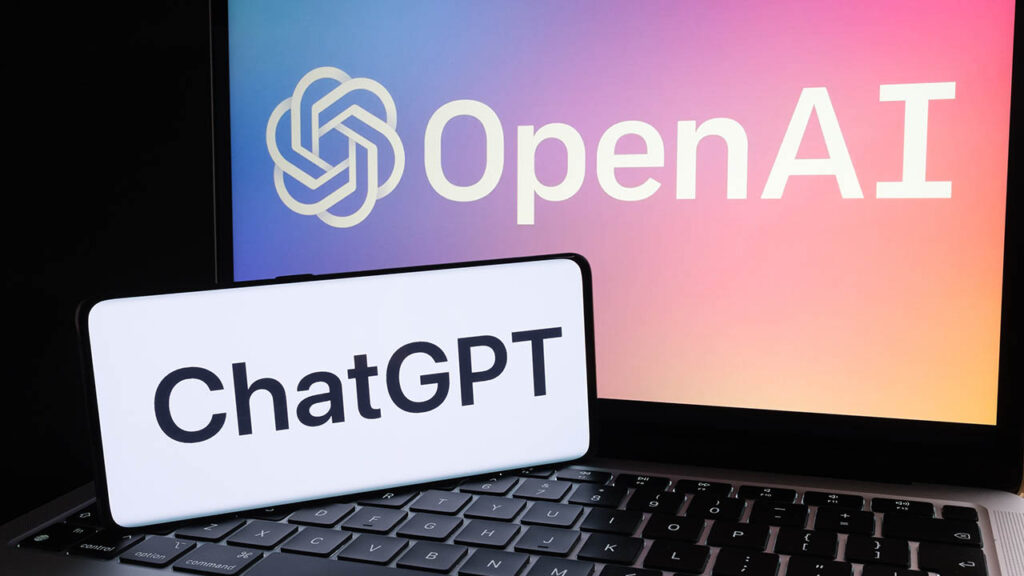
Is ChatGPT Down Again? Here Is What We Know






